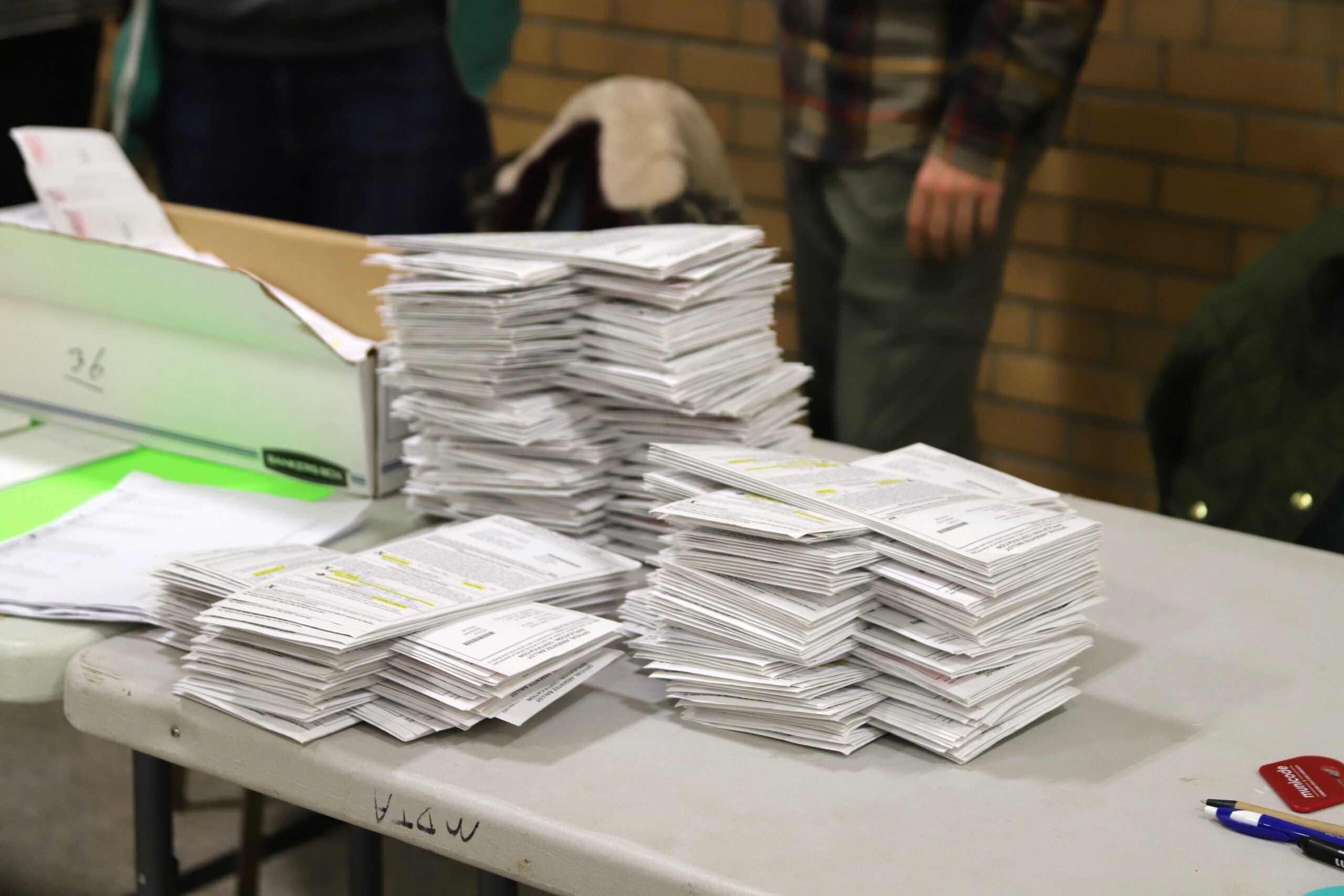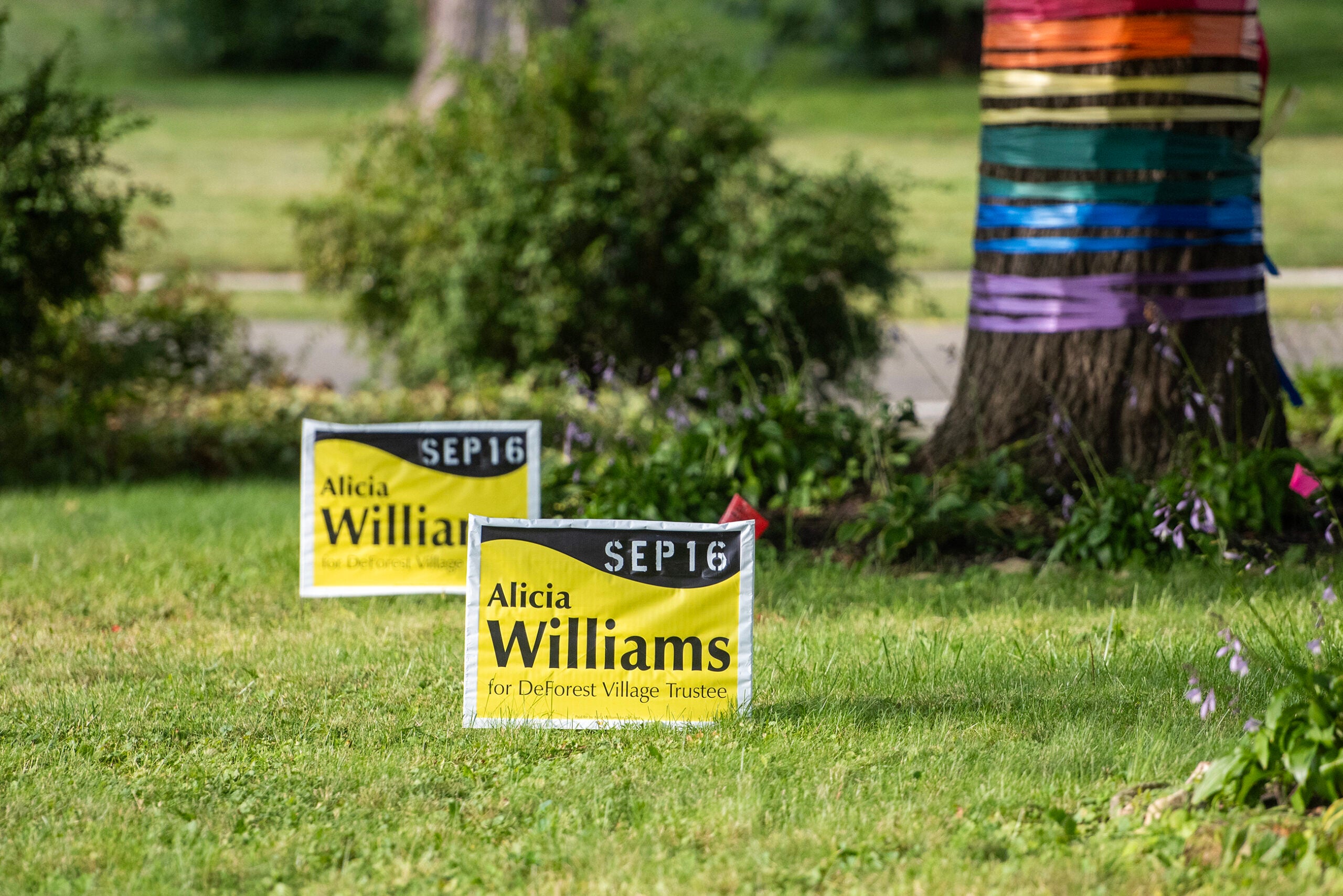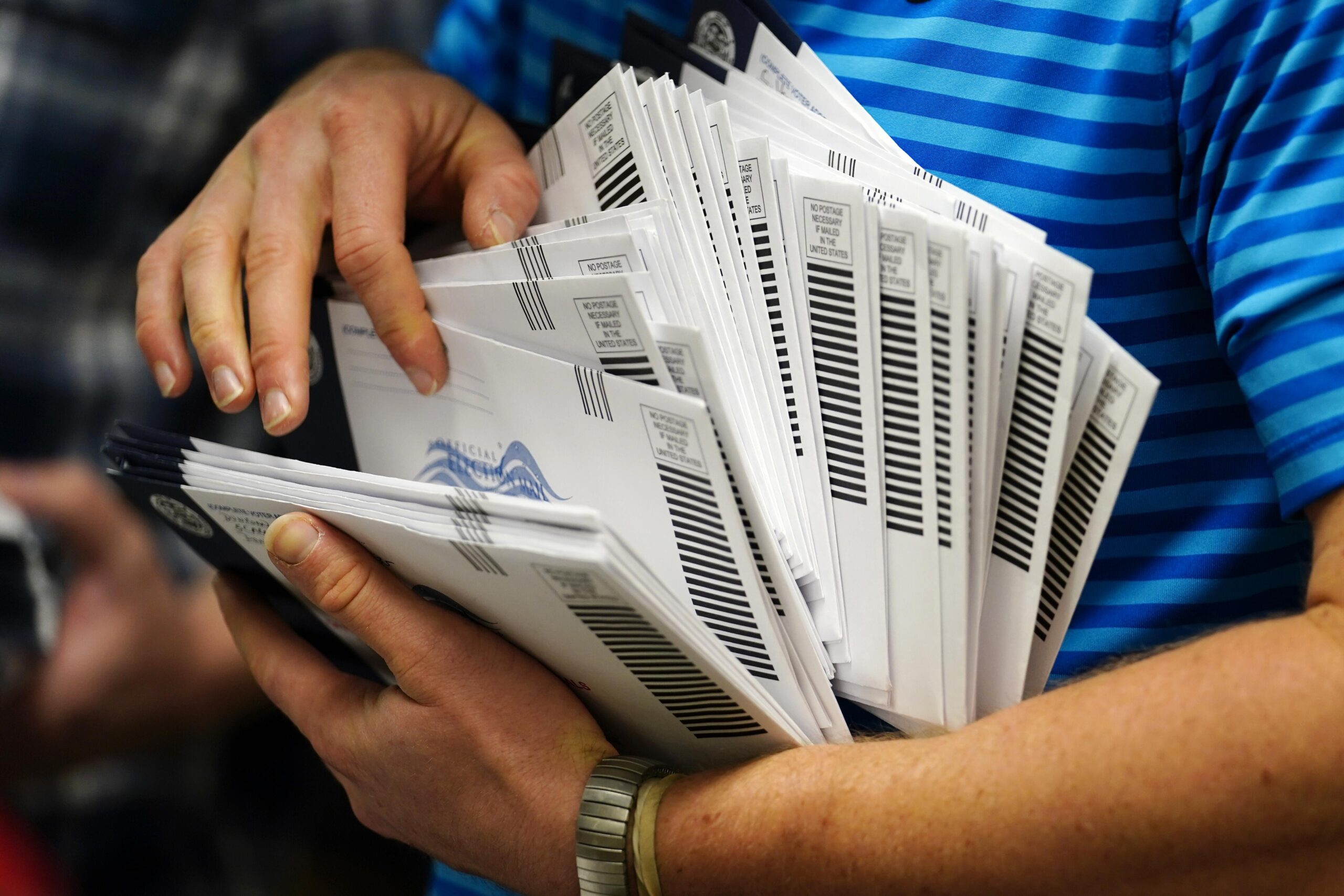A county-by-county canvass of Wisconsin’s election results has yet to show major changes to the numbers reported last week.
With 55 of Wisconsin’s 72 county canvasses complete, President-elect Joe Biden had gained 43 votes while President Donald Trump had gained 39 votes, giving Biden a net gain of four votes.
Unofficial results reported by county clerks last week showed Biden winning the state by 20,543 votes out of nearly 3.3 million cast.
News with a little more humanity
WPR’s “Wisconsin Today” newsletter keeps you connected to the state you love without feeling overwhelmed. No paywall. No agenda. No corporate filter.
Those results are then reviewed by municipal clerks and then by county clerks, who each complete canvasses of the results. County clerks are required to complete their canvasses by Tuesday.
Wisconsin Elections Commission administrator Meagan Wolfe said the canvass is where local election officials double-check the results. That includes making sure the number of ballots counted matches the number of ballots issued, and that everyone who voted was registered.
“Every step of elections is transparent,” Wolfe said. “There is nothing that happens that is not transparent, that is not public data that you can’t have access to. And, so, I think voters really should have a great deal of confidence in the process.”
The Trump campaign has indicated it plans to request a recount once the canvass is done. Assuming the canvass is completed Tuesday, the campaign would have until 5 p.m. Wednesday to make that request.
A recount would be a more thorough process than a canvass, opening the sealed bags of ballots that were cast on election night and physically recounting them.
Assuming Biden’s margin of victory after the canvass remains similar to what was reported with unofficial returns, Trump’s campaign would be required to pay for the recount — that is, if Biden’s margin is more than 0.25 percent and less than 1 percent. That payment would be due when the recount is requested.
A 2016 recount of Wisconsin’s presidential campaign requested by third-party candidates cost roughly $2 million, according to the Wisconsin Elections Commission. While Wolfe has not given an estimate for what a 2020 recount might cost, counties would have increased expenses associated with the COVID-19 pandemic. Those include plexiglass barriers and larger facilities to give people room to recount ballots while socially distant.
Once a recount begins, the county clerks and others who are working can’t take more than a day off under state law. That could mean a clerk who takes off Thanksgiving would have to work through the rest of that weekend.
When the recount is finished, the results must be certified by the chairperson of the Wisconsin Elections Commission, not the full panel. The commission chair is currently Ann Jacobs, a Democrat.
At that point, if one of the campaigns disagrees with the final result, they can sue.
“That is when they can go to court,” said Wisconsin Elections Commission spokesperson Reid Magney. “They can’t sue before the recount is complete.”
Wisconsin’s 2016 recount did change the final vote total, but not by much. In that race, Trump gained 131 votes in the recount, winning Wisconsin by fewer than 23,000 votes.
Wisconsin Public Radio, © Copyright 2025, Board of Regents of the University of Wisconsin System and Wisconsin Educational Communications Board.







